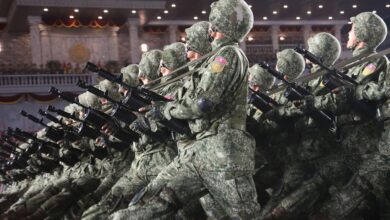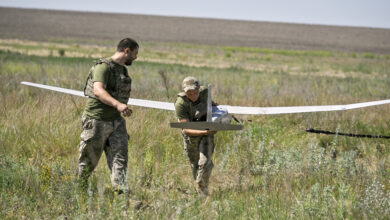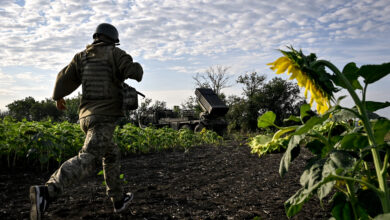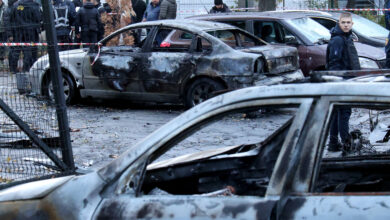Libya’s warring rival governments announced in separate statements Friday that they would cease all hostilities and organize nationwide elections soon, an understanding swiftly welcomed by the United Nations.
The statements were signed by Fayez al-Sarraj, head of the UN-recognized unity government based in the capital Tripoli, and Aguila Saleh, speaker of the eastern-based parliament backed by military strongman Khalifa Haftar.
The two have been at war virtually since the formation of Sarraj’s government in December 2015.
The UN’s top official to Libya, Stephanie Williams, called for “all parties to rise to this historic occasion and shoulder their full responsibilities before the Libyan people.”
Acting SRSG Williams warmly welcomes points of agreement in today’s declarations by PM Serraj and Speaker Aguila, calling for a ceasefire and the resumption of the political process https://t.co/E6UJPFsEfm pic.twitter.com/but5lKw3GX
— UNSMIL (@UNSMILibya) August 21, 2020
Egyptian President Abdel Fattah al-Sisi welcomed the ceasefire declarations.
“I welcome statements by Libya’s presidential council and the House of Representatives calling for a ceasefire and halting military operations in all Libyan territory,” Sisi said in a tweet.
Sisi, whose government has been a major supporter of the eastern-based administration dominated by Haftar, said the twin announcements were an “important step” on the path to restoring stability.
Libya has been in chaos since a Western-backed uprising toppled and killed longtime dictator Moamer Kadhafi in 2011.
Haftar launched an offensive in April 2019 to seize Tripoli from the Government of National Accord (GNA).
But the move prompted intervention by Turkey and its regional ally Qatar in support of the GNA.
After 14 months of fierce fighting, Turkish-backed pro-GNA forces expelled Haftar’s troops from much of western Libya and pushed them eastwards to Sirte, a gateway to Libya’s rich oil fields and export terminals.
As well as Egypt, Haftar has had the backing of the United Arab Emirates, Saudi Arabia, and Russia, prompting repeated calls from the United Nations for outside powers to stop meddling.
German Foreign Minister Heiko Maas, on a surprise visit to Tripoli on Monday, warned that Libya faces a “deceptive calm” since fighting stalled around Sirte.
The central Mediterranean coastal city — a symbolic site as the hometown of Kadhafi — is the gateway to Libya’s eastern oil fields and export terminals, and to the key Al-Jufra airbase to the south.
Western powers, fearing that a GNA attack on Sirte would raise the prospect of direct clashes between regional heavyweights Turkey and Egypt, have called for renewed peace efforts.
Egypt, which has threatened direct military intervention, has also sought to join forces with some of the neighboring country’s powerful tribes, to give it a local partner aside from the volatile strongman Haftar.











